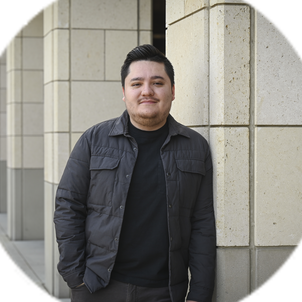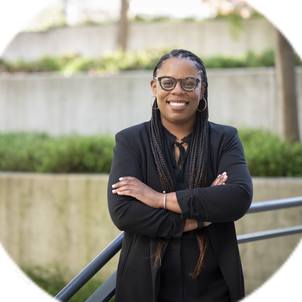Many engineering applications require simulations of large and complex systems. Simulating those kinds of systems requires a large amount of computational energy – sometimes beyond current computing capabilities. Where I come in is developing fast algorithms that can perform multiple operations at once so that we can make better use of the modern supercomputers we rely on to perform simulations. On one NASA-funded project I was part of, my algorithms were being used to do things like simulate more complex flight conditions on supercomputers.
I became interested in engineering because of my dad, who worked as a mechanical engineer at a thermal power plant in my hometown of Neyveli, India. Once there was a pipeline problem damaging their equipment, so he decided to solve it by borrowing my high school physics textbooks and writing down equations and ideas to improve the system. When he finally solved it, I thought it was the coolest thing ever because it was the first real application I saw of what I was learning in school.
Sometimes I take on projects unrelated to my core work too. When COVID hit, my friend Varun and I noticed that different states in India were inconsistent in their COVID data reporting, making it hard to get a real picture of what was happening. Since we’re both Indians, we were emotionally invested and decided to find a way to give back to our country. During the daytime we’d work on our own research, and then we’d come back in the evening and comb through COVID data from different states. We were able to find a huge disparity in the reporting they were doing and wrote a paper outlining the problem. We created a template for the minimal set of data that should be provided to share essential information and reached out to the individual states to share our work. We got a lot of media attention in India because it was the first time someone could articulate the problem with the numbers that were being shared. The media called on the government to take action citing our findings and, based on our follow-up studies, there was an improvement in the quality of reporting. It was really rewarding to see.
I get to be part of projects I really care about at Stanford and I think that’s because of the sense of community on campus. When I first came from India I had imposter syndrome, but when I opened up to my ICME cohort about it, they surprised me by saying they felt the same way, which helped me get over it. I love that it’s a supportive environment rather than a competitive one. Whether I need to talk through problems in my research, or just want to play a game of Great Western Trail, they are here for me.
Related spotlights

Lara Weed

Sebastian Fernández

